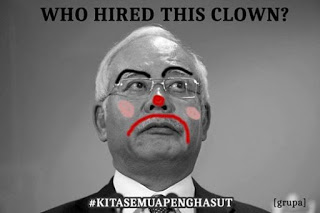July 5, 2016
Malaysia: Playing with Religious Extremism Fire
by Michael Vatikiotis

People attend a candlelight vigil for the victims of the July 1 terrorist attack in Dhaka. © Reuters
The holy month of Ramadan saw terrorist attacks claimed by the Islamic State take almost 400 lives around the world. The targeting of Bangladesh and Malaysia in particular has revived fears that with IS under military pressure in Syria and Iraq, its shadowy planners are looking at resorting to the old al-Qaida model of networked terrorist cells operating in Muslim-majority Asia.
This means that in addition to the many thousands of foreign fighters who made their way into the ranks of IS in Syria and Iraq returning home with the motivation and the skills to carry out terrorism, it is possible that IS has begun helping them recruit and organize spectacular attacks.
Islamic militancy is a strong undercurrent in the Muslim-majority states of the region, fueled by social and economic injustice and well-financed Wahhabi and Salafist teachings. The recent surge in tension between religious communities — Buddhist against Muslim in Myanmar, Sunni against Shia in Indonesia — has helped highlight perceived threats to Muslims that lend impetus to militant teachings.

A club in Puchong, on the outskirts of Kuala Lumpur, was the target of a grenade attack on June 28. © Reuters
Ethno-nationalist struggles in southern Thailand and the southern Philippines remain unresolved and offer permissible environments for Islamic extremist thinking and ideology. The failure to establish a productive dialogue process in southern Thailand or to make progress on implementing a comprehensive peace agreement in Muslim Mindanao is fast alienating a generation of youth who are open to extremist views.
There is also a resurgence of archipelagic regionalism gaining prominence in mostly Muslim maritime Southeast Asia. Since last year, a specific Malay-speaking unit within IS, known as Katibah Nusantara, has amassed a force of 500-plus fighters hailing from Malaysia, Singapore, Indonesia and the Philippines. Katibah Nusantara’s social media presence is conducted in Malay, and its messaging openly solicits the “Nusantara” region — an old term for the Malay world. This group is an embryonic terrorist network that will become a conflict driver when it returns to the region.
Balancing Act
Inevitably, there are calls for harsher security measures. A new anti-terrorist law in Indonesia seeks to increase the period of detention of suspects without trial from one week to six months. However, this plays into the hands of conservative political forces that would use the terrorist threat to roll back democratic space and legal certainty in the region.
A far more effective, but admittedly challenging approach would be for governments and societies in the region to address the underlying factors generating the potential appeal of transnational Islamic extremism.
The first priority is for states to accept responsibility for the careful management of relations between religious communities. Growing tensions between religious minority and majority groups have accompanied the general trend toward more open, democratic politics. In Indonesia, political parties have sought to exploit these tensions, rather than tamp them down, in the quest for votes. In Myanmar, Buddhist nationalism was exploited in the run up to last year’s democratic election, resulting in violence against Muslim communities.

A protester wears a “Jihad The Only Solution” T-shirt in Kuala Lumpur on Jan. 23. © Reuters
In Malaysia, the government has carelessly allowed conservative Islamic views to upset the country’s delicate ethnic and religious balance. Just a week or so before the first IS attack in Malaysia, a leading member of the Islamic clergy declared that non-Muslim members of a leading opposition party could be slain because they opposed the imposition of the Islamic criminal code.

Second, greater attention must be paid to the external sponsorship of religious education. The virtually unfettered access to funding from Wahhabi foundations in Saudi Arabia has cultivated less tolerant conceptions of Islamic faith in the region. This in turn exposes young Muslims to an austere, exclusivist version of Islam at odds with the traditionally moderate and open-minded brand of mostly Hanafi-school Islam practiced in Southeast Asia for hundreds of years.
This is not simply about promoting moderation or balancing religious and secular curricula, but speaks to the need to actively recover the region’s distinctive adaptation of Islamic dogma and teaching, which over centuries has enabled Muslims and non-Muslims to coexist harmoniously. In the 1980s, Indonesia’s Ministry of Religious Affairs considered adapting Islamic law to the specific Indonesian context; today, Islamic scholars in Indonesia and Malaysia are arguing for the replication of laws and conventions that governed society in 7th century Arabia.
It is too late to simply make rhetorical appeals for moderation. There is an urgent need to control or shut off the foreign funding and preaching that, even in prisons where extremists are held, conducts the poisonous message of hatred toward nonbelievers and the isolation of Muslim communities.
Thirdly, for Muslim areas of southern Thailand and the Philippines, the absence of a credible political dialogue and meaningful political empowerment for the populations in question creates a real risk that difficult (but ultimately resolvable) ethno-nationalist conflicts will be displaced by barbaric terrorism dominated by groups with whom dialogue is far more problematic.
Growing Impatient
Unfortunately, the approach taken by central governments in Bangkok and Manila to date has prioritized the safeguarding of territorial sovereignty at the expense of either meaningful dialogue or sincere commitments to autonomy.
They reap what they sow: The Moro Islamic Liberation Front, which has negotiated in good faith with successive Manila governments for almost 20 years, is awaiting passage of an implementing law through Congress so that a mutually agreed model of special autonomy can be implemented in Muslim Mindanao. Meanwhile, according to the group, thousands of young Muslim Moros grow impatient with the absence of a peace dividend and are susceptible to extremist ideology streaming through their smartphones and tablets.
On the nearby islands of Sulu and Basilan, a network of well-armed criminal gangs inspired by al-Qaida 15 years earlier use IS propaganda and alleged affiliation to inspire a new generation of militants — though mainly in the interests of making money by kidnapping innocent sailors and tourists. The alleged complicity of local government and security forces in this lucrative business makes it hard to imagine an effective campaign to prevent IS from establishing a beachhead in the area.
Taken altogether, smarter approaches to social and education policy, as well as the political management of marginalized people, can make it more difficult for IS to recruit or sponsor its violent messengers of hatred.
The biggest obstacle to making the rapid adjustments needed is that Southeast Asia, where more than 300 million Muslims reside, is still very much a sum of its parts. No Malaysian government will take kindly to being told about the dangers of giving conservative mullahs free rein; no Myanmar official appreciates being told how to treat Muslims better; no Thai government wants to be pushed into a sincere political dialogue to end the conflict in southern Thailand.
Until the region takes a truly collective view of its own security and starts to put aside selfish concerns of sovereignty in the interests of the common good, it seems only a matter of time before Southeast Asia once again becomes a significant target of terror.
Michael Vatikiotis is the Asia regional director of the Centre for Humanitarian Dialogue.








